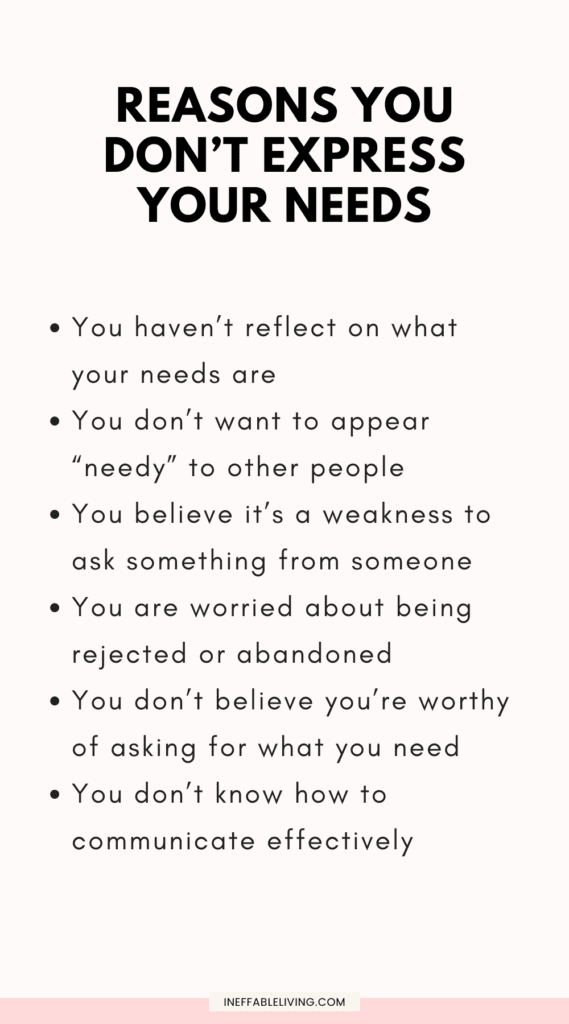Today, you’re going to learn all about hyper independence trauma and how to overcome it.
What Is Hyper Independence Trauma?
Some level of independence is important and useful.
However, when the need to be overly independent become isolating, independence can create stress.
Hyper-independence is when someone chooses to be independent of everyone, even when it’s negatively affecting them.
Hyper-independence can be a response to a past trauma.
You may be overly independent because you learned in the past that you could not trust others to meet your needs, and so you decided that it’s best to rely on yourself to avoid any rejection or harm.
Related: Why Is Trauma Therapy So Hard? (+Best Trauma Healing Exercises To Support Your Recovery)
Signs of Hyper-Independence Trauma
Does any of the following describe you?
- You are fiercely independent.
- You tend to push people away for fear of being hurt.
- You refuse help, even when accepting help would make much simpler for you.
- You take on too much responsibility.
- You have difficulty delegating.
If so, you may be struggling with hyper-independence as a trauma.
Related: 7 Trauma Release Exercises To Support Your Recovery After Trauma
How To Heal Hyper-Independence Trauma?
#1. Understand Why You Need To Let Go Of Hyper-Independence
Hyper-independence can cost you a lot. It can push other people away and prevent you from experiencing true intimacy and connection with your loved ones.
It’s also important to keep in mind that to let go of hyper-independence doesn’t mean you’ll become completely dependent on others.
You’ll always be independent, responsible adult, but you’ll also find the strength to allow yourself to receive from those who care about you.
Related: Do I Have Trauma? Top 4 Practical Exercises To Support Your Trauma Healing
#2. Challenge Your Negative Beliefs
People who are hyper-independent usually sharing the following beliefs:
- I can’t trust others to meet my needs
- Depending on others makes me “needy”
It doesn’t help when society tends to view independence as a strength and dependence as a weakness.
Although hyper-independence has been a coping mechanism that helped you survive so far, as an adult, you no longer depend on your family for survival.
You get to choose the people you get into relationships with and you get to walk away from emotionally unavailable people, who aren’t able to meet your needs.
Related: Negative Core Beliefs List (& 8 Tips On How To Challenge Them)
#3. Practice Asking For Help
One of the most challenging things hyper-independent people face is the ability to ask for help.
It takes willingness to be vulnerable and to risk rejection.
It’s hard to relate to and connect with those who come across as if they are totally “together.” . Instead, we bond wither those who come across as being as human as we are.
This doesn’t mean that you don’t practice good judgment. You need to make sure you’re being vulnerable with people who are safe.
Related: Best 9 Tips On How To Receive More In Life And Relationships?

#4. Learn to Be Assertive
There are three basic styles of communication: passive, aggressive, and assertive.
Many associate being assertive with being demanding and self-serving.
But it is possible to be both assertive and kind.
Assertiveness is expressing your feelings and needs in direct, calm, and respectful manner.
1. Define your needs
Before you start practicing assertiveness, you need to be clear on what your needs and feelings are.
You can start by asking yourself throughout the day the following questions:
- How do I feel right now?
- What do I need?
2. Use “I statements”
A four-part model for using “I statements” has been proposed by the Ohio Commission on Dispute Resolution and Conflict Management:
- “I feel ___ (taking responsibility for one’s own feelings)
- “I don’t like it when__ ” (stating the behavior that is a problem)
- “because____” (what it is about the behavior or its consequences that one objects to)
- “Can we work this out together?” (be open to working on the problem together).
3. Write a Script Beforehand
You may find it helpful to write down what you want to say before having the actual conversation, especially when the issue is too triggering.
Related: Top 5 Tips On How To Be Assertive Without Being Rude

References
- Trauma and Hyper-Independence: Is There a Link? (psychcentral.com)
- Hyper-independence: A Possible Characteristic of Trauma (exploringyourmind.com)



